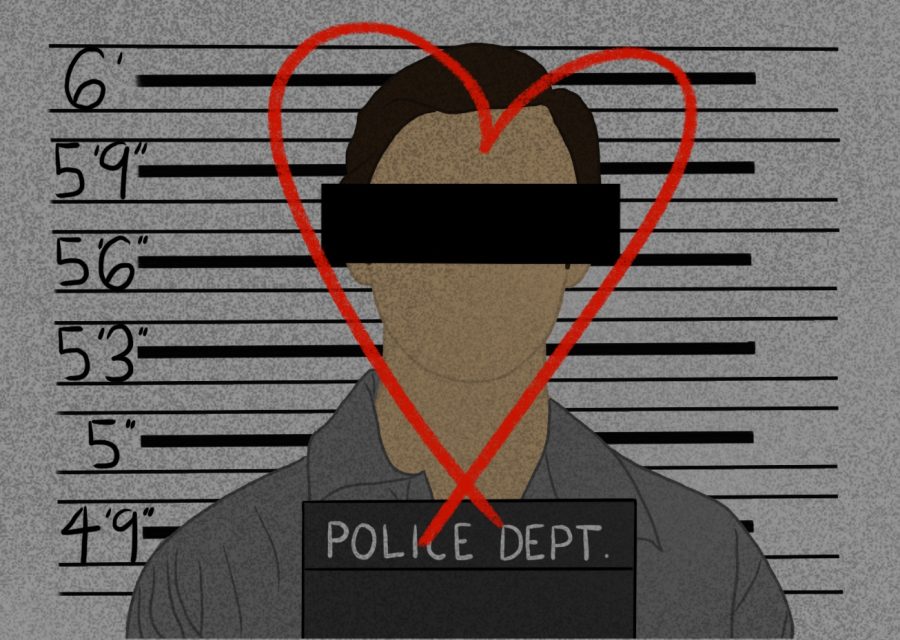Idolized Criminals
A deep dive into the phenomenon of glamorizing serial killers
Over the past few years, I’ve seen countless people on social media romanticizing notorious serial killers: Ted Bundy, Richard Ramirez, Jeffrey Dahmer and many more. Most of them have even received fan mail, love letters and marriage proposals while in prison.
Most people would probably view the phenomenon as strange and twisted, so then why is it so prevalent?
I believe that there are two main reasons why people love serial killers so much.
The first is that the media over-glamorizes them and gives them too much attention. The rise of true crime documentaries on these criminals have pushed them into the spotlight, especially through large streaming platforms such as Netflix. These documentaries—for the most part—try to be as unbiased as possible and tell the story as it is; however, I believe that the production of TV shows about the killers strongly influences people’s ideas of them and not always in the best way.
For example, in Extremely Wicked, Shockingly Evil and Vile Zac Efron is cast as Ted Bundy and in Dahmer – Monster: The Jeffrey Dahmer Story, Evan Peters is cast as Jeffrey Dahmer. Both actors are relatively conventionally attractive and popular amongst impressionable youth, thus having a high chance of creating an over-glamorized idea of those killers.
The shows depict the killers to be complex and intelligent, which creates a sense of appeal among the audience; nevertheless, the depictions are usually true portrayals since most of the killers were considered manipulative and charming—the reasons why they were able to attract victims.
Increasing media attention on these criminals makes them seem more like pop culture figures instead of real people, and people then start to separate the crimes from the criminal. They feel as though they’re fangirling over a fictional character that has killed fictional people, therefore convincing themselves that the victims weren’t real and justifying their strangely positive feelings toward a serial killer.
Another probable reason for the phenomenon is the mindset of being able to “fix” the criminals. This idea has been growing on many social media platforms—TikTok being the one I see the most—where people believe that they can “correct” someone’s bad habits.
I believe that this mindset stems from people wanting to feel special, in that they’re the only ones who can connect with a bad person and improve their personality. The more “evil” someone is, the more people want to “fix” them.
Serial killers are pretty high up on the “evil” scale, therefore garnering thousands who want to connect with them and be known as someone who helped turn such an evil person good.
Overall, the main reason why people romanticize serial killers is because of “pretty privilege.” If a person is attracted to someone, it’s difficult to see them as a bad person because everyone thinks that attractiveness equals good—it’s a natural instinct.
This phenomenon is incredibly harmful to victims because they’re invalidated. It’s immoral to justify someone’s actions because of their attractiveness, yet it happens all the time.
Most people who know the famous serial killers can’t even name one of their victims. This goes to show how downplayed the crimes have been and how overlooked the victims are. Their murderers and rapists are put in the spotlight and idolized while they themselves are forgotten.
While true crime is a huge industry with millions tuning in to read or listen to interesting analysis of criminals—myself being one of them—I think it’s important to be self-aware of the gravity of these cases and acknowledge that they’re real.










![UNSUNG HEROES — Fred Korematsu, Karen Korematsu and Aiko Herzig-Yoshinaga are awarded the Asian American Justice Medal to recognize their fight for justice following the incarceration of Japanese Americans during World War II. In addition, scientists Shuji Nakamura, David Ho, Tsoo Wang, Mani Menon and Chih-Tang “Tom” Sah receive the Asian American Pioneer Award. "[As a scientist,] it is crucially important to be able to communicate your work and your discoveries to [not only] other scientists, but also to the general public," Ho said. Photo by Talia Boneh](https://cmagazine.org/wp-content/uploads/2025/07/useee-600x400.jpg)